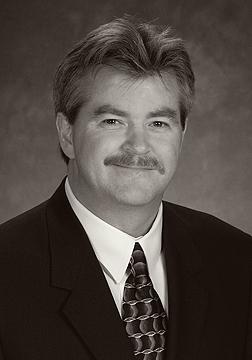To Err Is Human
Anything that has the potential to adversely affect the care delivered to patients is slowly being driven out of the Healthcare System and for good reason. In 1999 the Institute of Medicine (IOM) released its report, To Err is Human: Building a Safer Health System, which stated that between 44,000 and 98,000 Americans die each year due to medical errors. Without significant changes in our Healthcare System this estimate is expected to increase. The quandary we face though is that innovation in Medicine is dependent on research, and research, particularly high-risk research, is dependent on trial and error. So how do we build a safer Health System and utilize the advances that can be gained by potentially risky research?
Primum Non Nocerum
Healthcare has embraced the philosophy of Total Quality Management (TQM). There isn't a hospital operating in the United States that doesn't have some type of quality improvement system in place. The medico-legal risk of not having one is too high. The advantage of embedding TQM philosophy in the Healthcare System strikes at the heart of the IOM's report. We need to build a safer system and in order to do that we must create a system that has an extremely low tolerance for error. In the process of doing this hospitals and the people who work in them must become risk adverse. Protecting the patient becomes paramount in such a Healthcare System and our highest value becomes patient safety. Research, particularly research involving patients, involves risk. So how do we in the Healthcare System engage in high risk activities in a risk adverse environment?
In Search Of "Best Practices"
One of the ways is to separate what we consider experimental from the standard of care. This is not always easy as part of what we sometimes refer to as the "art of medicine" is found in the gray, indeterminate area between the two. The resolution in today's Healthcare System is to decrease the heterogeneity of specific practice patterns by focusing on the delivery of "best practices". The advantage is to eliminate worst or even mediocre practices and raise the standard of overall care. Advances in the "best practices" standard will occur through a combination of "evidence based medicine" and "practice based evidence". Evidence based medicine uses research involving specific patient populations and consensus opinions among practitioners to derive "best practices". "Practice base evidence" uses statistical methods to evaluate existing patient care databases to derive "best practices" among practitioners providing care to a general patient population. "Practice based evidence" is a relatively low-risk way to identify "best practices". Research, on the other hand, is the gold standard for evidence based medicine but carries some increased risk. What we need is a way to further reduce risk in the research we perform as well as any other areas that are inherently risky but necessary.
Simulators Aren't Just For Pilots
Simulation is in its infancy but has enormous potential as one of many strategies evolving to reduce risk in our Healthcare System. The two main areas it will affect are research and education/training. Creating and testing research models on simulators prior to exposing patients to a research protocol will reduce some of the risk inherent and necessary in experiments. "Best practices" will follow a path that goes from hypothesis, to research simulation, to clinical research, to evidence based medicine, and on to the final testing ground as practice based evidence. In addition, future medical students and residents will train on simulators to learn and further develop their skills. This will reduce some of the risk that is inherent in medical education. The old saying, "See one, Do one, Teach one", will become, "See one, Sim one, Do one". The goals of simulation are to reduce error, maintain patient safety, encourage innovation and to constantly improve quality and outcomes in our health and our Healthcare System.
Subscribe to:
Post Comments (Atom)

1 comment:
Hi...Your post really got me thinking man..... an intelligent piece ,I must say. Get more information about Simulation Healthcare .
Post a Comment